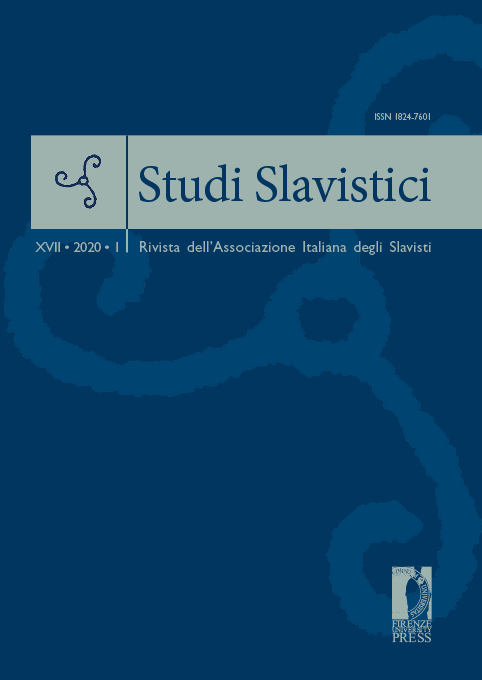Published 2020-05-23
Keywords
- Svetlana Vasilenko,
- Contemporary Russian Literature,
- Feminist Revision of Myth,
- Hagiography,
- Fool in Christ
- Amazons,
- the Great Mother,
- Nuclear War,
- Time Travel ...More
Abstract
In this article Vasilenko’s novel The Little Fool is analysed in order to highlight the ways the author created the hybrid genre of the “novel-hagiography” by re-visioning a series of classical, biblical and folk myths. The novel has a frame-like structure and the main character of the novel has two hypostases in two different timelines: Nad’ka in the early Sixties and Ganna in the early Thirties, both in the Soviet Union. The core of the novel re-visions and recreates the figure of the ‘Fool in Christ’ by assigning this role to a female protagonist, the thirteen-year-old girl Ganna. Her double, Nad’ka, merges the figures of the archetypal Great Mother and the Mother of Christ. At the end of the novel Nad’ka gives birth to a new Sun thereby saving her people from the menace of a nuclear war. This novel is a fine example of the neo-mythological conscience which, in the late twentieth century, found expression in the works of many Russian women writers who reworked classical and folk myths, giving agency to female characters and astutely altering the traditional plots of myth.


